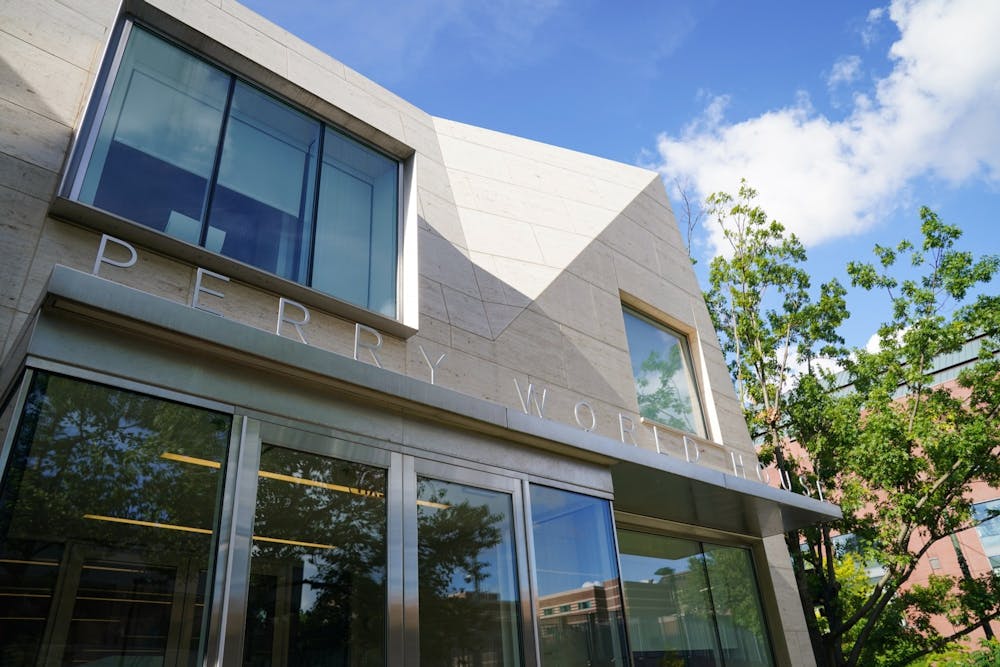
Penn Medicine virologists outlined how lessons from COVID-19 can help the world prepare for a potential future pandemic at a Perry World House event on Tuesday.
The panelists blasted the Trump administration for mishandling the early stages of the pandemic and emphasized the importance of access to reliable health information. The event, titled “The Next Pandemic?,” featured a conversation between W. M. Measey Professor and Chair of Microbiology Frederic Bushman and Professor and Vice Chair of Microbiology Susan Weiss, who serve as the co-directors of the Penn Center for Research on Coronaviruses and Other Emerging Pathogens.
Bushman and Weiss said that the government must be sufficiently prepared for the possibility of a future pandemic before it begins.
Weiss criticized the disorganization and unpreparedness of the Trump administration at the start of the pandemic, which she said caused the United States to experience a shortage of personal protective equipment and COVID-19 test kits.
“History will not be gentle with the past administration,” Bushman said.
The key lesson to be learned from the early problems in containing the spread COVID-19 in the United States, Bushman said, is the importance of sound, well-informed leadership.
Bushman said it is also particularly important that the public knows where they can find reliable health and safety information during a pandemic. While both Weiss and Bushman praised medical experts, such as National Institute of Allergy and Infectious Diseases Director Anthony Fauci, for their reliability and accuracy, Bushman said that there are other effective ways of sharing information with the general public, such as relying on popular public figures.
“Who should be articulating [reliable information] is whoever will get through to the people you need to get through to,” Bushman said.
Celebrities or athletes with a constructive voice can be very useful for reaching the public as long as their information is accurate according to subject area experts, he added.
Up-to-date information is always the most trustworthy because accurate information continues to change with experts' understanding of the pandemic, event moderator and Professor of Medicine and Computer Sciences Harvey Rubin said. Changing recommendations should be seen as improvements on existing knowledge, rather than contradictions or inconsistencies that negatively impact the credibility of public health experts, he added.
“We have to be able to tell the public what we believe today, but that it might change tomorrow,” Rubin said. “The audience should recognize that advice can change.”
At the end of the panel, both speakers offered their predictions for the future of COVID-19 in the United States. Weiss said she believes the pandemic is in the final stretch, with the ever-growing number of vaccinated people poised to stop the spread.
“I don’t really see [COVID-19] as a chronic thing,” she said. “As long as we can make it stop replicating, I think we won’t have to keep vaccinating every year.”
Bushman, on the other hand, gave a more cautious assessment of the future. He said the end of the pandemic is a race between new variants virus of the virus and the public's commitment to stopping the spread through vaccines, masks, and social distancing.
“We’re in America’s costliest war, with 500,000 dead," Bushman said. "We’re hoping we’re in the final battle, but I could still see it going either way.”
The Daily Pennsylvanian is an independent, student-run newspaper. Please consider making a donation to support the coverage that shapes the University. Your generosity ensures a future of strong journalism at Penn.
Donate



